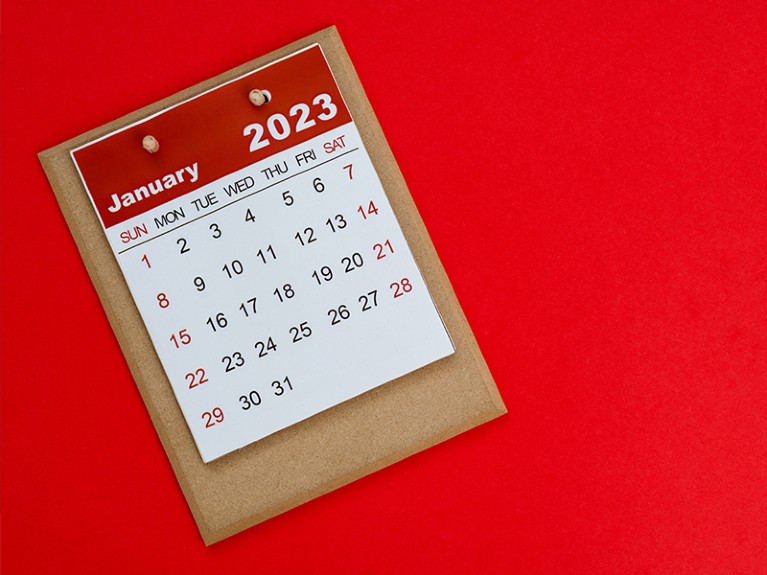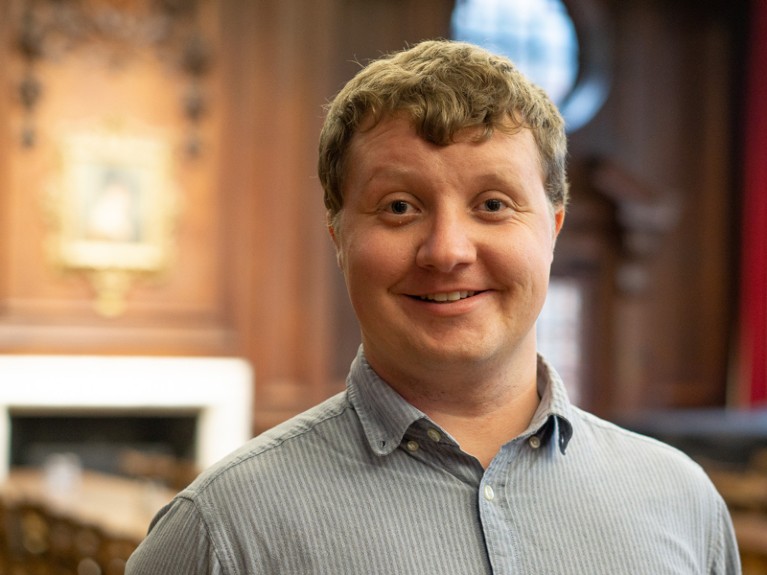Credit: Getty
My PhD deadline is looming. By the last day of this year my research needs to be finished, written up in my thesis and sent off to the examiners. My doctorate focuses on modelling the impact of climate change on perennial crops: exploring the impacts of weather phenomena on the quality and yield of some of the most important foodstuffs across the world. I’ve got a lot left to do.
The plan is to add three new chapters to my thesis this year, as well as to complete the ones I have been editing and reviewing over the past few months. With my deadline imminent, sitting down to make my annual New Year’s resolutions seems to have more significance this year. With that in mind, here are my contemplations on the upcoming year. Hopefully they will inspire some new habits in others.
Enrich workplace connections
Table of Contents
In my final year I know there will be ups and downs. One year is too long to simply endure, at least for me, so I’m trying to improve the things that make me stronger and happier. For me, that means boosting the connections to the people around me. These people have often made my PhD research, and life, more enjoyable — they have helped to spark ideas, been there to share laughter and alleviated workplace stress.

Collection: Life in the lab
In this I’m not alone. A poll of workers across several sectors in the United States, released in July last year, found that having friends at work made people happier, more creative and more productive in their job. My aim for this year is to mitigate the extra final-year stress by focusing on strengthening, maintaining and developing connections with those around me, be those at home or at work.
Projecting friendliness and positivity into the world can help to build support networks that people can rely on when life gets tough. Connecting with others is what will keep me going through the next year, so it deserves to be a priority in my resolutions.
Productive procrastination
Everyone procrastinates. I’m currently doing it by writing this article when I should be writing up my methods. Like any good procrastinator, these jumbled activities seem to take up a remarkable amount of time, under the auspices of being ‘useful’. I currently teach undergraduate students, I’m a member of several student committees, I participate in both team and individual sports, I socialize with friends and colleagues and I try to ensure that I still have time for cake baking on Sunday afternoons.
But going into my final PhD year is not the time for juggling commitments. My New Year’s resolution is to assess each activity I do, and ascertain its true value in making me happier. It’s been documented that highly social activities, at least for extroverts, make people considerably happier1. I’ve been thinking about the wild swimming I do, as well as the tennis and hockey I play, and whether these activities are productive or problematic. I currently do all of these on a weekly basis, both socially and a bit more competitively. Sport has been shown to have health benefits and improve work-based productivity2. I find this to be true, probably because it’s a social activity that creates a focus and discipline away from my work. So most of them will stay in my schedule.
But this isn’t true for everything. Commitments such as my student committee meetings, teaching and invigilation will need to be re-examined, restrained and some of them removed.

Andrew Wood is hoping to make the most out of the final year of his PhD.Credit: Jack Evans
Plan everything
I write daily lists of things to do, and make longer-term schedules of what I want to achieve and by when. My biggest work-based resolution this year is to take this list-making habit and use it to plan my thesis. Not just in terms of the chapter headings and the topic questions, but for planning the figures, methods and expected results. Although this will not be a quick process, it should be useful. It will turn what seems to be a Herculean task of writing a whole thesis into a series of smaller steps that can be taken at a measured pace.
By providing an overall plan for the year, shorter deadlines can be drawn for chapters, submissions and reviews, and a measure placed on the achievability of it all. Instead of using software planning tools, I prefer to sit down with a big piece of paper on which I have written all of the weeks I want to plan. I like the flexibility and simplicity of paper, and writing it down makes me feel like I’m committing to each task. For each week in the plan, I make a check list of manageable tasks and the projects I want to advance, this then gets written up into a neat version that I keep on my desk and refer back to.
For me, this best ensures equitable distribution of my time across projects, and helps me to make adequate progress. Thesis planning also provides the structure for my career and social calendars, too. Timings from my PhD work have points that make natural pauses.
These pauses can be used to apply for jobs outside of academia or post-doctoral positions, and also make time for holidays. Although it might seem early to be planning holidays and jobs for December, for me there is no task more urgent. A minute spent planning now saves days of pressure and stress later.
Resolutions are often broken. These three are no different, but they can be endlessly restarted, and offer long-term gains. We should expect that our resolutions will slip, and this is fine for me. I can turn the page over, reassess my priorities, make more effort with my connections and remake the plan.
But by setting myself up nicely at the beginning, the rest of the year will progress more smoothly: with greater efficiency, happiness and productivity. By resolving to always start well, people can endeavour to set habits that make impending deadlines seem that bit more manageable.
Competing Interests
The author declares no competing interests.
